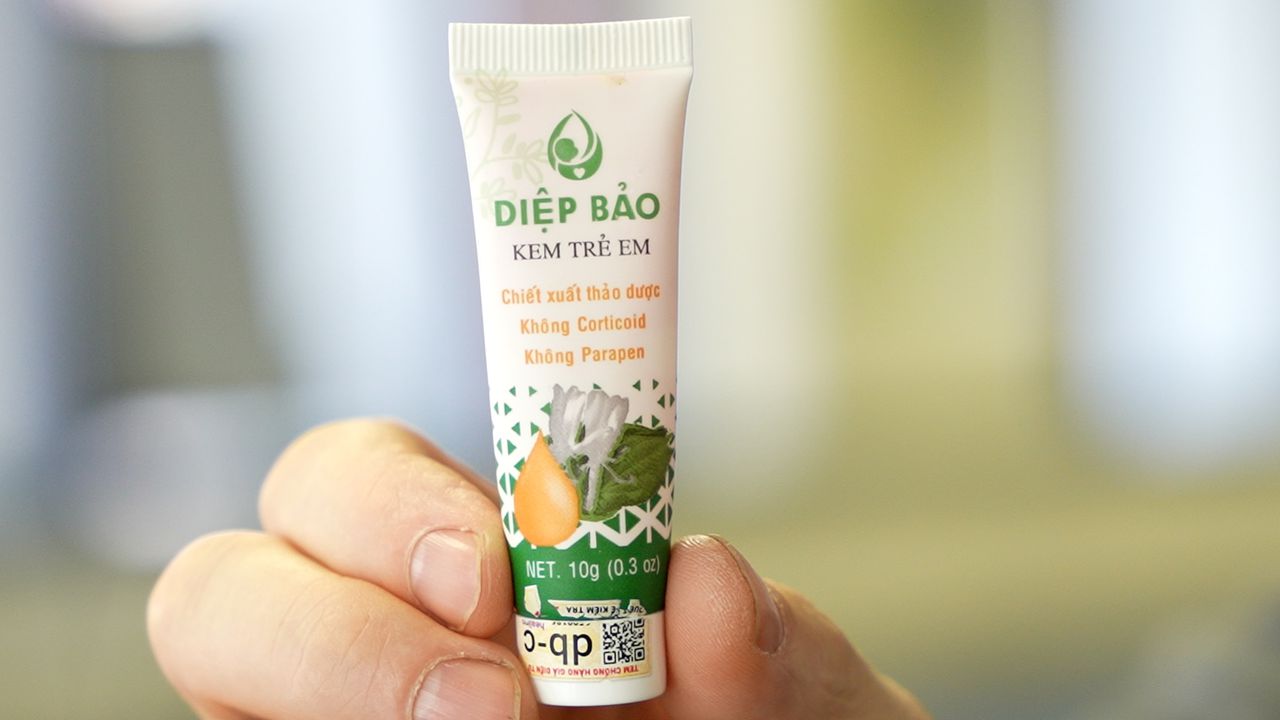Two Portland area infants developed lead poisoning after using an over-the-counter eczema cream found to have more than 1,000 times the amount of lead allowed for cosmetics under federal law, Oregon health officials said at a news briefing Thursday, asking that Oregonians not use or sell the product for the time being.
An infant in Washington County had more than twice the amount of lead in their blood than the level that defines blood lead poisoning, the Oregon Health Authority said, and an infant in Multnomah County had about one-and-a-half-times the level.
Parents of both children used the cream Diep Bao to treat eczema on their faces, said Ryan Barker, an OHA official in the agency’s child lead poisoning program.
“We believe this product caused or significantly contributed to the elevated blood lead levels in these children,” Barker said. “Any product containing such lead levels should be considered extremely dangerous and parents should immediately stop using it on their children or any other family member.”

Two tubes of Diep Bao eczema cream were found to have high amounts of lead.
The infants’ high lead levels are likely the result of accidentally ingesting the cream after it was applied to their faces or bodies, as opposed to absorbing it through the skin, Multnomah County Health Officer Dr. Jennifer Vines said.
Tests of the tubes the parents used revealed they contained far more lead than is allowed under law for cosmetics, though it’s unclear if the cream, manufactured in Vietnam, technically qualifies as a cosmetic. The Washington County sample had 967 times the concentration of lead allowed for cosmetics, while the Multnomah County tube had 737 times the concentration allowed.
Children exposed to lead for weeks or months can develop permanent damage resulting in learning disorders or developmental defects, the health authority said.
In the Washington Count case, the father said he used the product two to three times a week for five months, going through one full tube a month, Barker said.
Both parents bought the products online. As far as health officials know, the product isn’t being sold in brick-and-mortar stores in the Portland area, though they are not taking proactive steps to check. The health authority deferred to the federal government when asked if it could physically inspect stores itself.
“OHA, from my understanding, does not have the authority to tell or require a company to have them stop selling a product,” Barker said. “But that’s, that’s still something that we can learn about.”
The U.S. Food and Drug Administration is investigating, as are the state and local health agencies. Until they figure out the extent of lead contamination, health officials have asked retailers to not sell the product and parents to stop using it.
The agencies are trying to make sure the people mostly likely to be affected by the product learns about the potential dangers of the cream, reaching out to groups serving the Vietnamese community and translating materials into Vietnamese, state officials said. They are also planning to try to reach Vietnamese communities outside Oregon.
“This is just the beginning,” said Perry Cabot, a lead exposure investigator at Multnomah County. “But we hope to cover all of all of the ground that needs to be covered to get this word out to the community.”
Health officials ask that anyone who has used Diep Bao cream on their children contact their medical provider to get the child tested for lead poisoning. They also ask that parents who have a bottle of the cream submit it for testing. The Multnomah County phone number for instructions on how to submit a sample is 503-988-4000, accessible to residents of any county and with free interpretation in Vietnamese, Spanish and Russian. The service’s email is leadline@multco.us.
— Fedor Zarkhin
If you purchase a product or register for an account through one of the links on our site, we may receive compensation.
